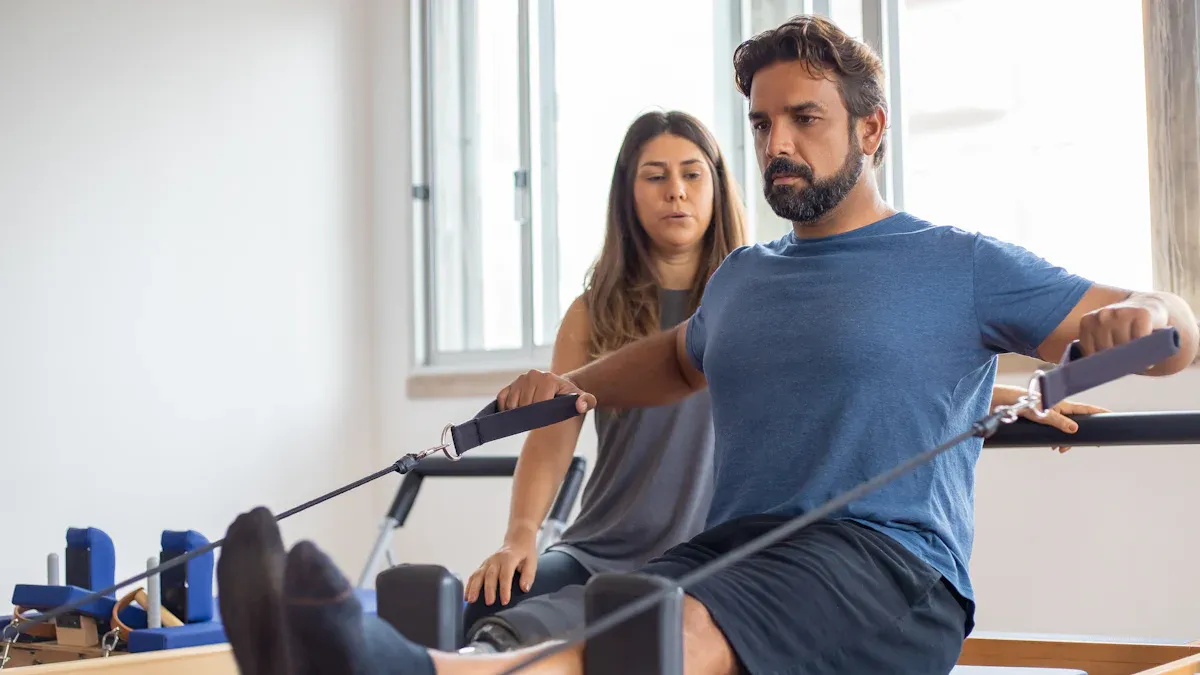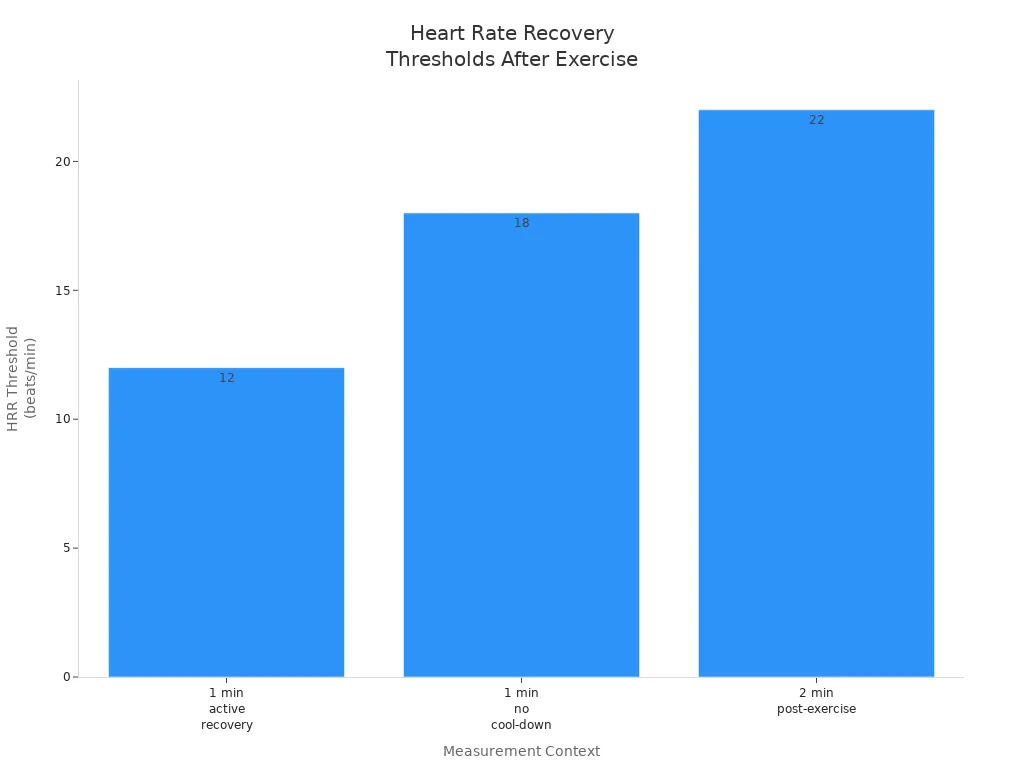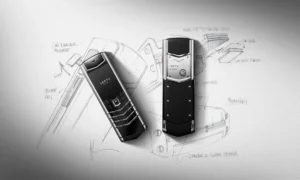
You finished your workout and your heart is still beating fast. This is normal after exercise. Your heart rate will go down as you recover, and lowering heart rate after exercise is a key part of this process. Many people, especially beginners, wonder if their heart rate should slow down faster. Studies say about 26% of people have a slower heart rate recovery. This can be managed with the right steps. It is important to pay attention to your heart health. Devices like the VERTU Aura Ring help you track your heart rate. They make lowering your heart rate after exercise easier and safer.
Key Takeaways
-
Your heart rate stays high after exercise because your body needs time to switch from active to rest mode.
-
Cool down with slow walking, stretching, and deep breathing to help your heart rate drop safely and avoid dizziness.
-
Stay hydrated and eat snacks with protein and healthy fats to support muscle recovery and heart health.
-
Use smart devices like the Aura Ring to track your heart rate and spot changes in your recovery over time.
-
Seek medical help if your heart rate stays high for more than three minutes or if you feel dizzy after exercise.
Lowering Heart Rate After Exercise
Why Heart Rate Stays High
You might notice a high heart rate after you finish your workout. This happens for several reasons. Your body needs time to switch from exercise mode to rest mode. Here are some key factors that keep your heart rate up:
-
Your muscles send signals to your heart through something called the muscle metaboreflex. This keeps your heart pumping faster for a while.
-
The parasympathetic system tries to slow your heart down, but strong signals from your muscles can make your heart rate stay high.
-
If you block the calming signals from your parasympathetic system, your heart rate goes even higher after exercise.
-
The balance between these two systems decides how quickly your heart rate drops.
-
People with certain health problems, like chronic heart failure, often have a high heart rate for longer because their calming system is weaker.
You can track your high heart rate and see how quickly it returns to your resting heart rate with smart rings like the Aura Ring by VERTU. This ring gives you real-time feedback and helps you understand your heart rate recovery patterns.
Tip: If you notice your high heart rate stays up for a long time, check your resting heart rate regularly. This helps you spot changes early.
How Long Recovery Takes
Your heart rate usually drops back toward your resting heart rate within a few minutes after you stop exercising. For moderate workouts, your heart rate should fall about 70% back to normal in that time. After vigorous exercise, your heart rate drops by about 20 beats in the first minute, then another 15 to 20 beats in the next minute. If your high heart rate takes longer than 3 minutes to return to your resting heart rate after moderate exercise, you may want to pay closer attention to your cardiovascular health.
Age and fitness level also affect how quickly your high heart rate returns to your resting heart rate. Younger people and those who exercise more often usually see faster heart rate recovery. Older adults and people with lower fitness may notice slower recovery. A drop of more than 12 beats per minute one minute after exercise is a good sign for your heart. If you want to keep track of your heart rate recovery, the Aura Ring by VERTU can help you monitor your resting heart rate and spot patterns over time.
Heart Rate Recovery Steps

Cool-Down Activities
You just finished your workout, but your heart is still racing. The best way to help your body slow down is to start with a cool-down. Cool-down activities help your heart rate drop safely and let your body shift from exercise to rest. Here are some steps you can try:
-
Walk or jog slowly for 5 to 10 minutes. This low-intensity movement helps your heart rate drop gradually and keeps blood flowing.
-
Stretch your major muscles. Focus on your quads, hamstrings, calves, and shoulders. Hold each stretch for about 20 to 30 seconds. This helps your muscles recover and keeps you flexible.
-
Try deep breathing. Slow, steady breaths help your body relax and support heart rate recovery.
-
Use a foam roller to gently massage tight muscles. This can boost blood flow and help your muscles feel better.
-
Practice gentle yoga poses like child’s pose or downward dog. These moves stretch your body and encourage relaxation techniques.
Tip: Always cool down after exercise. This helps prevent dizziness and keeps your resting heart rate steady.
A good cool-down keeps your heart from dropping too fast. It also helps your body move from activity to rest without feeling light-headed. Stretching and slow movement help your muscles recover and lower your resting heart rate over time.
Breathwork Techniques
Breathwork is one of the most powerful relaxation techniques for managing stress and helping your heart rate return to normal. When you focus on your breath, you help your body relax and recover faster. Here’s how you can use breathwork after exercise:
-
Breathe slowly at about 5.5 to 6 breaths per minute. Try to make your inhale and exhale the same length.
-
Do this for about 15 minutes. You can sit or lie down in a quiet place.
-
Focus on each breath. Feel your chest and belly rise and fall.
This type of breathwork helps your heart rate recovery by improving heart rate variability. It also lowers your blood pressure and helps your body shift into rest mode. If you practice these relaxation techniques after every workout, you will notice your resting heart rate drops more quickly.
Try this: Inhale for a count of five, then exhale for a count of five. Repeat for several minutes to help your body relax.
Hydration and Nutrition
Drinking enough water is key for heart rate recovery and managing stress after exercise. When you stay hydrated, your heart does not have to work as hard. This helps your resting heart rate return to normal faster. Here are some simple hydration and nutrition tips:
-
Drink water during and after your workout. If you sweat a lot, add a drink with electrolytes.
-
Eat a snack with both carbohydrates and protein within an hour after exercise. Good choices include fruit and yogurt, a smoothie, or a handful of nuts.
-
Replace lost minerals by eating foods like bananas, leafy greens, or nuts.
-
Try to drink 1.5 liters of water for every kilogram of weight you lose during exercise.
-
Include healthy fats from foods like avocado or fish to help your body recover.
Proper hydration supports your heart and helps your body rest. Eating the right foods after exercise also helps your muscles repair and keeps your resting heart rate steady.
Note: Dehydration can slow your recovery and make it harder for your body to rest. Always keep a water bottle handy!
Monitoring with Smart Devices
You can use smart devices like the VERTU Aura Ring to track your heart rate recovery and resting heart rate. The Aura Ring fits comfortably on your finger and quietly measures your heart rate, sleep, and other health data. It gives you real-time feedback, so you know how your body is recovering after exercise.
The Aura Ring uses advanced sensors to track your heart rate with over 85% accuracy compared to clinical monitors. You can check your resting heart rate, see how quickly your heart rate drops after exercise, and get weekly wellness reports. These insights help you spot patterns and make better choices for rest and recovery.
Wearable devices like the Aura Ring make it easy to monitor your health without going to a clinic. You can see your progress, adjust your routine, and use relaxation techniques to support your recovery. The Aura Ring also connects you with health experts who can help you understand your data and give advice on managing stress and reducing stress.
Remember: Tracking your resting heart rate and using relaxation techniques can help you recover faster and feel your best.
Recovery Best Practices
What to Avoid
You want your heart rate to drop safely after exercise. Some habits can slow down your recovery or even put your heart health at risk. Here’s what you should steer clear of:
-
Sudden stopping: If you stop moving right after a workout, your blood can pool in your legs. This may cause dizziness or fainting. Always cool down with gentle movement.
-
Skipping recovery routines: Missing your cool-down or stretching can lead to muscle cramps, stiffness, and soreness. Your muscles need time to return to their normal state.
-
Stimulants and unhealthy substances: Stay away from illegal drugs, alcohol, and nicotine. These can harm your heart and slow your recovery. Too much sugar or salt can also raise your risk for heart problems.
-
Overusing caffeine: Drinking too much coffee or energy drinks can make your heart beat faster and delay recovery.
-
Ignoring stress: Stress and anxiety can keep your heart rate high. Try deep breathing or meditation to help your body relax.
Tip: The VERTU Aura Ring can help you track your recovery and connect you with health experts for advice on safe routines.
When to Seek Help
Sometimes, your heart rate does not return to normal as expected. You should know the warning signs that mean you need to talk to a doctor. Here’s a quick guide:
|
Warning Sign (Heart Rate Recovery) |
Time After Exercise |
What It Means |
|---|---|---|
|
1 minute (with cool-down) |
Higher risk for heart problems |
|
|
Heart rate drops less than 18 beats per minute |
1 minute (no cool-down) |
Doubled risk of heart issues |
|
Heart rate drops less than 22 beats per minute |
2 minutes post-exercise |
Poor recovery, possible heart trouble |

If you feel dizzy, faint, or your heart rate stays high for more than three minutes after you finish, you should get checked by a doctor. These signs can mean your heart is not recovering well. The Aura Ring gives you easy access to health experts who can help you understand your numbers and guide you on what to do next.
Note: Listening to your body and getting help early can protect your heart health and keep you safe.
You can safely lower your heart rate after exercise by focusing on gradual recovery. Start with gentle movement and breathwork. Track your resting heart rate to see how your body responds. Regular exercise helps your heart recover faster and keeps your resting heart rate healthy. Smart tools like the Aura Ring give you real-time feedback and help you spot changes in your resting heart rate. Remember, getting enough sleep and listening to your body are just as important as your workouts. If your resting heart rate stays high or you feel unwell, reach out for help.
FAQ
How fast should your heart rate drop after exercise?
Your heart rate should drop by at least 12 beats in the first minute after you finish. If you cool down, you help your heart slow down faster. Tracking with the Aura Ring makes it easy to see your progress.
Can you lower your heart rate too quickly?
You should not try to lower your heart rate too fast. Sudden stopping can make you dizzy or faint. Always cool down with gentle movement. Your body needs time to adjust.
What foods help your heart rate recover?
You can eat bananas, yogurt, or nuts after exercise. These foods give you potassium, protein, and healthy fats. They help your muscles recover and support your heart.
How does the Aura Ring help with recovery?
The Aura Ring tracks your heart rate, sleep, and activity. You get real-time feedback and weekly wellness reports. You can also talk to health experts for advice.
When should you talk to a doctor about heart rate recovery?
If your heart rate stays high for more than three minutes or you feel dizzy, you should contact a doctor. The Aura Ring can help you spot warning signs early.







